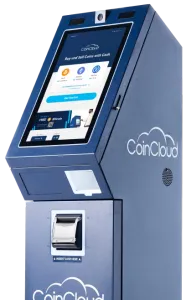dForce contacted the hacker via blockchain transaction, offering to negotiate a bounty. Several days later, the project tweeted that the attacker had "c[o]me forward as a whitehat", and that the funds had been fully returned. "We have agreed to offer a bounty and will drop all on-going investigation and law enforcement actions," they announced.
dForce Network exploited for $3.65 million, funds returned
Paxos ordered to stop minting Binance USD stablecoin, SEC sends Wells notice
Nearly simultaneously, the SEC sent a Wells notice to Paxos, informing them of imminent enforcement action. According to the Wall Street Journal, the SEC told Paxos they intended to sue the company for violating investor protection laws, and that the SEC believed Binance USD was an unregistered security.
Paxos agreed to stop minting new BUSD tokens (but will continue to honor redemptions), and said in a statement that they would be ending their stablecoin-minting relationship with Binance. As for the SEC, Paxos has promised to "vigorously litigate if necessary", arguing that BUSD is not a security.
- "Crypto firm Paxos to face SEC charges, ordered to stop minting Binance stablecoin", CNBC
- "Crypto Firm Paxos Faces SEC Lawsuit Over Binance USD Token", Wall Street Journal
- "Regulator Orders Crypto Firm Paxos to Stop Issuing Binance Stablecoin", Wall Street Journal
- Statement by the New York Department of Financial Services
- Statement by Paxos
Paxos faces investigation over stablecoin offerings
It's not quite clear the extent of the NYDFS investigation, though it joins rumors (denied by Paxos) that they were also being investigated by the US Office of the Comptroller of the Currency (OCC), which regulates banks. Paxos has a provisional banking charter, which it received from the OCC in 2021. It also has a virtual currency license, which is issued by the NYDFS.
Umami Finance halts yields, CEO dumps tokens amidst accusations of rugpull
Shortly after, the project CEO began dumping tokens on the market, cashing out 44,000 UMAMI tokens. These were ostensibly priced at $800,000, though the sell-off crashed the UMAMI price by more than 60% and ultimately netted the CEO around $380,000 of USDC.
Amidst the sell-off, a team member tried to reassure users that "the team resigned" but that also, confusingly, the "treasury assets are safe and in control of the team".
Kraken ends staking, pays $30 million fine in settlement with U.S. SEC
According to the SEC, Kraken had failed to register its staking-as-a-service program, which had generated $147 million in revenue.
This is not Kraken's first run-in with authorities, after paying a $360,000 fine to OFAC in November for sanctions violations.
Peer-to-peer Bitcoin exchange LocalBitcoins to shut down after ten years
LocalBitcoins cited "the ongoing very cold crypto-winter" as the rationale for the closure, and stated that new sign-ups would be suspended immediately. Trading will be suspended a week later, and users will have a year to withdraw Bitcoins they stored on LocalBitcoins' wallet product.
Yuga Labs' 3-week-long "Dookey Dash" game tournament ends amidst allegations of widespread cheating
Yuga Labs has said that, following the end of the three-week-long game tournament, the Sewer Passes with non-zero scores in the game will transform into something new, with the idea that higher scorers may receive more valuable NFTs.
This, of course, incentivized users to try to cheat in the game by creating bots, changing the browser-based game code to eliminate obstacles, or access game seeds that allowed them to predict the layout of a course run. Sewer Pass holders began paying others to play their game for them — either more skilled players, or players who were using these tools. Some were charging up to 2.5 ETH (~$4,200) to obtain scores of 700,000 or more for those who hired them.
Yuga Labs has promised to review gameplay to ensure that those who cheated are disqualified. They've also warned people buying Sewer Passes after gameplay ended that if they buy a pass that is determined to have cheated, it will be worthless. Some are skeptical of Yuga's ability to accurately detect cheaters, and others have expressed concern over false positives in the game's cheat detection that appeared to be caused by slower Internet connections.
Creator of MetaBirkins NFTs loses trademark infringement lawsuit from Hermès
Rothschild tried to argue that his work echoes Andy Warhol's Campbell's soup cans and other "brand art".
Hermès, on the other hand, argued that Rothschild was simply a "digital speculator" hawking a "get rich quick" scheme, and trying to profit off consumers' confusion that the NFTs were an official Hermès production. They claimed they have their own plans for NFTs, and that Rothschild impeded those with his project.
Ultimately, the jury found that Rothschild had infringed upon the Hermès trademark, and awarded the company $133,000 in damages.
"[Hermès] feel they have the right to choose what art IS and who IS an artist... Not because of what they create but because their CV doesn't scream artist with a pedigree from a world class art school," accused Rothschild after the decision, though he was not actually the designer of the images used in the NFT project.
Coin Cloud crypto ATM operator files for bankruptcy
The company disclosed liabilities between $100 million and $500 million, and assets between $50 million and $100 million. In a filing, they reported they had 5,001–10,000 creditors.
By far the largest creditor is Genesis, a crypto lending firm that is also undergoing bankruptcy proceedings. Coin Cloud has a $116 million loan from Genesis, around $108 million of which is unsecured. Coin Cloud also owes a $7.6 million secured debt to crypto lending firm Enigma.
According to Coin Cloud, contributing to their bankruptcy was a $35 million deal with a vendor who they allege sold them faulty ATMs in February 2021, and with whom they are in litigation. Furthermore, in September 2021, the firm providing Coin Cloud's ATM software tried to terminate their software agreement, and pushed a software update that rendered the machines inoperable, causing days- or weeks-long outages. Coin Cloud decided to deploy unfinished ATM software that they had been using internally, and which was quickly hacked for around $6.5 million. Finally, Coin Cloud claims a chief marketing officer they hired lied about his credentials, and then spent $20 million more than he was budgeted.
Webaverse discloses $4 million theft via a mysterious social engineering attack
Trust Wallet published a thread about the theft, characterizing it as a social engineering scam perpetrated by an "organized crime unit from Rome". However, they didn't clearly address the claims about funds being stolen via a photograph of the Trust Wallet. Trust Wallet seemed to suggest they believed that the theft may have been perpetrated via malware transmitted in a PDF containing KYC information.
Webaverse described the incident as "undoubtedly a setback", but expressed belief that they would be able to continue operating.









